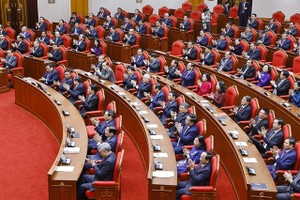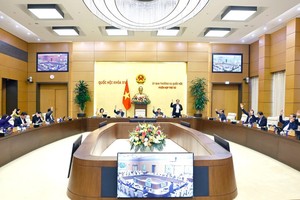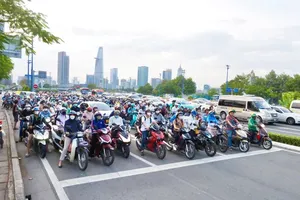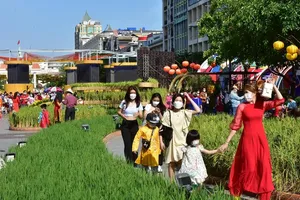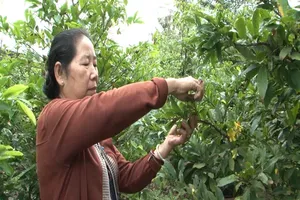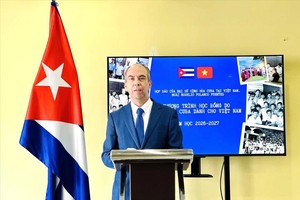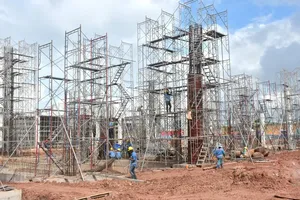Thousands of employees and traffic police personnel working in the transport sector joined many volunteers in Hanoi to stage a march in support of ‘Month of National Traffic Safety 2011’ under the theme “Prevent Drunken-driving”, yesterday.
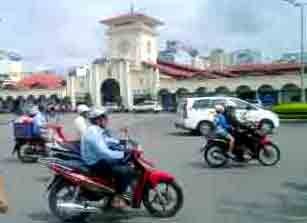
Addressing the gathering, Deputy Prime Minister Nguyen Xuan Phuc said Hanoi needs to invest in more public transport infrastructure to reduce private vehicles on roads, eliminate “black traffic spots” and reserve more land for the purpose of broadening the roads.
The Deputy PM stressed that Hanoi leaders have to adopt very strict and consistent methods to resolve these issues.
The Ho Chi Minh City People’s Committee also decided to launch ‘Month of National Traffic Safety’ yesterday. The People’s Committee Deputy Chairman Nguyen Huu Tin ordered all related agencies to step up propaganda to raise people’s awareness of traffic rules and law as well as clamp down heavily on traffic violations to ensure more safety on roads.
The city launched the campaign to build up better traffic culture in communities and in response to the United Nation’s ‘Decade of Action for Road Safety 2011-2020’, that aims to reduce casualties on roads with simple and practical actions. The target for ‘Month of National Traffic Safety’ is to reduce fatalities by 5 percent, injuries by 10 percent and decrease the traffic gridlock time compared to the same period last year.
Moreover, stretches of roads still undergoing construction must be made safe for riders and not in any way impede traffic. The City Traffic Safety Committee, the Department of transport and traffic wardens must set up a joint committee to respond to accidents or traffic congestions with great speed.
In addition, traffic police must clear pavements to make it easier for pedestrians to walk and issue fines on traffic violators to reduce traffic casualties in the coming months. An awareness campaign on traffic safety on roads, railways and waterways should be advertised so as to reach every class of society.
According to the City Traffic Safety Committee, there have been 568 traffic accidents and many more gridlocks in parts of the city than there were last year. Worse still, traffic accidents seem to be on the rise and the fad for illegal motorcycle racing has again re-occurred.
| WHO and the National Traffic Safety Committee continue to strengthen road safety and eliminate drunken-driving in Vietnam. Coinciding with the launch of Vietnam's traffic safety month, WHO and the National Traffic Safety Committee (NTSC) announced the commencement of a joint campaign to strengthen road safety in Vietnam from August 28. Focusing particularly on the prevention of drunken-driving, this anti-social behavior being life threatening for other drivers as well as innocent bystanders. |


